Section 8 housing in Palm Beach, officially known as the Housing Choice Voucher Program, is a federal initiative designed to provide rental assistance to low-income families, elderly individuals, and people with disabilities. For landlords in Palm Beach County, participating in the Section 8 program offers unique opportunities and responsibilities. This guide covers the essentials of Section 8 housing, the benefits for landlords, and how to navigate compliance to avoid potential pitfalls.
What is Section 8 Housing?
The Section 8 program is administered by the U.S. Department of Housing and Urban Development (HUD) and managed locally by public housing authorities (PHAs). The program:
- Provides Rental Assistance: Tenants pay 30% of their income toward rent, with the remainder covered by the voucher.
- Supports Housing Choice: Tenants can select any housing that meets program requirements, including single-family homes, apartments, and townhouses.
- Ensures Standards: Properties must meet HUD’s Housing Quality Standards (HQS) to qualify.
Benefits of Accepting Section 8 Tenants
Landlords who participate in the Section 8 program enjoy several advantages:
- Consistent Payments:
- Rent subsidies are paid directly by the PHA, ensuring reliable income.
- Lower Vacancy Rates:
- High demand for affordable housing means properties are leased quickly.
- Long-Term Tenants:
- Many Section 8 tenants stay longer, reducing turnover costs.
- Guaranteed Rent Amount:
- The government ensures payment of the subsidized portion, reducing financial risk.
Responsibilities of Section 8 Landlords
Participating in the program comes with specific obligations:
1. Property Compliance
- Ensure the property meets HUD’s HQS, including:
- Functioning utilities and appliances.
- Adequate heating, cooling, and plumbing systems.
- Safe and sanitary living conditions.
2. Lease Requirements
- Use a lease agreement that complies with HUD regulations and local laws.
- Include a tenancy addendum provided by the PHA.
3. Fair Housing Practices
- Treat Section 8 applicants the same as non-voucher tenants.
- Avoid discriminatory practices, such as refusing to rent solely based on voucher use.
4. Annual Inspections
- Properties must pass initial and ongoing inspections by the PHA to remain eligible.
- Address any issues identified during inspections promptly.
Steps to Become a Section 8 Landlord
- Contact the Local PHA
- Reach out to the Palm Beach County Housing Authority to register your property.
- List Your Property
- Advertise on platforms where Section 8 voucher holders search for housing.
- Screen Tenants
- Conduct thorough background checks, as HUD does not screen tenants for landlords.
- Apply the same criteria to all applicants to comply with fair housing laws.
- Prepare for Inspection
- Ensure the property meets HQS before scheduling the inspection.
- Address any deficiencies noted during the inspection process.
- Sign a Housing Assistance Payments (HAP) Contract
- Finalize the agreement with the PHA to begin receiving subsidy payments.
Common Challenges and Solutions
| Challenge | Solution |
|---|---|
| Inspection Failures | Conduct pre-inspection checks and address deficiencies proactively. |
| Late Payments from PHA | Maintain communication with the housing authority to resolve delays. |
| Tenant Concerns | Set clear expectations in the lease and maintain open communication. |
| Regulatory Compliance | Stay updated on HUD and local housing regulations with regular training. |
Avoiding Legal Issues
To minimize the risk of disputes or lawsuits, landlords should:
- Understand Fair Housing Laws:
- Refusing to rent to Section 8 voucher holders may violate state or local anti-discrimination laws.
- Document Everything:
- Keep detailed records of inspections, communications, and lease agreements.
- Respond Promptly to Maintenance Requests:
- Failure to address repairs could lead to non-compliance and potential legal action.
- Consult Legal Experts:
- Work with attorneys experienced in landlord-tenant and HUD regulations to ensure compliance.
Case Study: Successful Section 8 Participation in Palm Beach County
Scenario: A property owner with a multi-family unit faced high vacancy rates and inconsistent rental income.
Solution:
- Listed the property as Section 8 eligible and worked with the PHA to streamline inspections.
- Conducted minor renovations to meet HQS.
- Provided tenant education to ensure lease compliance.
Outcome:
- 100% Occupancy: All units were leased to voucher holders within three months.
- Steady Income: PHA payments provided financial stability.
- Positive Tenant Relations: Open communication fostered tenant satisfaction.
Resources for Property Owners
- Learn more about tenant screening services to evaluate applicants effectively.
- Discover maintenance management solutions to ensure HQS compliance.
- Explore digital tools to streamline property operations.
Conclusion
Participating in the Section 8 program in Palm Beach County offers landlords a stable and rewarding opportunity to support affordable housing initiatives while securing reliable income. By understanding program requirements, maintaining property compliance, and fostering positive tenant relationships, landlords can maximize the benefits of Section 8 housing. Atlis Property Management provides expert guidance to help property owners navigate the complexities of Section 8 participation.
Contact Atlis Property Management today to learn how we can assist with Section 8 housing. Visit atlispm.com for more information.


